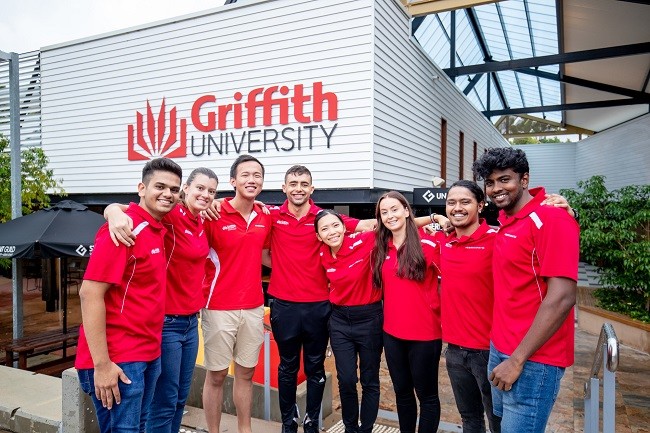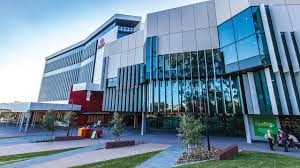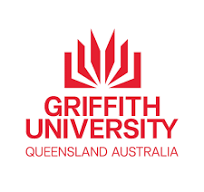
MASTER OF EDUCATION


Overview
2 YEARS
YES
AU $34,500 PER YEAR
FEB, JULY, NOV
Overview
> Elevate your expertise with a Master of Education
> The Master of Education is designed to advance your knowledge and expertise in the field of education. Whether you're a seasoned educator, school bursar or development officer, or a professional in a related field, you'll develop greater expertise in educational practice, leadership and research.
> Join a global community of learners and gain access to a wealth of resources and opportunities for professional growth and development. The Master of Education may also contribute to current teachers' professional development requirements.
> With courses designed to meet the evolving needs of educators and professionals, this degree allows you to balance your studies with your professional commitments.
> The Master of Education is not designed to lead to initial teacher registration (Primary or Secondary) or accreditation as an Early Childhood Education and Care teacher. If your goal is registration or accreditation in one of these areas, check out our Master of Primary Teaching (5587), Master of Secondary Teaching (5700) or Graduate Certificate in Early Childhood Education and Care (3327) programs.
Study options
> There are three pathway options for this degree:
Pathway 1 - Complete the Masters in 1 year full-time, for students with a related education degree and work experience*
Pathway 2 - Complete the Masters in 1.5 years full-time, for students with any bachelor degree*
Pathway 3 - Complete the Masters in 2 years full-time, for students with any bachelor degree*
*See entry requirements below for further detail.
Majors
> Depending on your career aspirations and interests, you can complete majors in the following areas:
Leading in Education
This major introduces you to broad understandings of leading in education across diverse professional settings. You will:
*Explore the relationship between leadership and education at both structural and policy levels.
*Investigate the impact of education policies both locally and globally.
*Examine change management strategies, as well as a range of approaches to evaluate programs and measure performance.
*Build your skills in research, communication and critical analysis.
Wellbeing in Education
Positive psychology has powerful implications for learning, teaching and professional development. In this major you will:
*Critically evaluate theories of wellbeing in the context of education and learning.
*Conduct an evaluation of leadership styles, strategies, and practices and how they support and sustain mental wellbeing and resilience in people, organisations, and institutions.
*Discover contemporary notions of childhood, adolescence, family and parenting and how they can be applied in the education, legal, and community services sectors.
*Explore new, evidence-backed ways to tackle key issues such as mental wellbeing, trauma and family violence.
Digital Learning in Education
Over the last 30 years there has been a digital evolution of educational technologies. In this major you will:
*Examine the constant digital shift and its impact on teaching and learning.
*Explore strategies and practices to support individuals through the ever-evolving relationship between learning and the online environment.
*Examine how a professional learns through social mediated networks online and how this impacts educational practices.
*Explore the dynamic world of artificial intelligence (AI) and engage in thought-provoking discussions on AI ethics and its profound societal impact.
International Studies in Education
Explore current perspectives on globalisation, ethics in international relations and plurilingualism. In this major you'll:
*Investigate discourses in global settings including education, legislation, leadership, and health.
*Learn how to implement clear and explicit communication in education, leadership roles and high-pressure situations.
*Gain advanced knowledge and understanding of the economic political and cultural dimensions of globalisation.
*Have the chance to study an approved course in another (global) university.
Culturally Responsive Studies in Education
Through the lens of ethics, cultural safety, social equity and social justice, in this major you'll:
*Adopt cultural strength-based approaches and frameworks in education and professional studies.
*Learn ways of seeing, being and doing that strongly align with the knowledges and philosophy of Indigenous peoples.
*Consider how cultural identities influence and impact learning.
*Implement cross-cultural understandings and extend your knowledge of cultural protocols.
The 2 year program also allows for studies in Special Needs Education, Autism Studies, Early Childhood studies* (not accredited with ACECQA), or Teaching English to Speakers of Other Languages (TESOL) (offered at Nathan and online).
* Does not lead to accreditation as an Early Childhood Education and Care teacher. If your goal is accreditation, please consider the Graduate Certificate in Early Childhood Education and Care (3327).
Related degrees
Graduate Certificate in Educational Studies – 3385
Graduate Diploma of Educational Studies – 4205
Attendance information
Flexible study options include online or on-campus study in intensive and full-time modes where the program structure allows.
If you are an International student on a student visa, you must ensure that you enrol in a way that will allow you to complete your enrolment within the expected program duration as stated on your Confirmation of Enrolment (CoE).
My career opportunities
Upon successful completion of this degree, you'll have an advanced breadth of skills and knowledge applicable across a range of industries. This enhanced expertise opens doors to rewarding career prospects in various sectors, offering opportunities for professional growth and advancement both locally and internationally.
Whether pursuing roles in consulting, education, or other fields, you'll be well-prepared to excel in dynamic and diverse professional environments. You'll also be exposed to research practices, paving the way for future research in the field of education.
A variety of employment opportunities exist for Master of Education graduates, including, but not limited to:
*leading curriculum innovators
*learning and teaching specialists
*learning support teachers
*educational administration
*training and development
*educational management consultant
*specialist practitioner consultant
*policy and planning officer
*education officer.
Inquire Now
Entry Requirements
> To be eligible for admission to the Master of Education, you must have:
> Pathway 1- 1 year program (80CP):
> A recognised Bachelor of Education or Bachelor of Education (Honours) or Graduate Diploma of Education or Master of Teaching or an ACER Graduate Certificate in Education - Assessment of Student Learning or a Bachelor degree in a related discipline (for example, in Learning and Development) with a minimum grade point average of 4.0 using a 7.0 scale; AND evidence of two years full-time (or equivalent) employment in a professional role within a recognised formal educational setting.
Pathway 2 - 1.5 year program (120CP)
> A recognised Bachelor degree (or higher) in any discipline with a minimum grade point average of 4.0 using a 7.0 scale; OR
> A combination of alternative admission criteria such as formal, informal, and non-formal learning deemed to be equivalent to either of the above.
Pathway 3 - 2 year program (160CP)
> A recognised Bachelor degree (or higher) in any discipline with a minimum grade point average of 4.0 using a 7.0 scale; OR
> A combination of alternative admission criteria such as formal, informal, and non-formal learning deemed to be equivalent to either of the above.
> English language requirements apply to International applicants and other applicants whose previous study was undertaken in a language other than English. The minimum English language requirements for such applicants for entry to this program are as follows:
> A minimum overall band score of 6.5 on IELTS (Academic) with no sub-score of less than 6.0
> OR a minimum score of 575 on TOEFL
> OR an internet-based (iBT) TOEFL score of 79 (no sub-score less than 19)
> OR no score less than 3+ in each skill of the ISLPR (conducted by ISLPR Language Services only)
> OR a minimum overall score of 176 (no score less than 169) on C1 Advanced (formerly Cambridge Certificate in Advanced English) or C2 Proficiency (formerly Cambridge Certificate of Proficiency in English)
> OR an overall score of 58 in the Pearson Test of English (Academic) with no score less than 50.
Fees
Tuition fees
> An International student pays tuition fees.
> Students are liable for tuition fees for the courses they are enrolled in as at the census date.
> The tuition fee for students who commence their program prior to 2014 is charged according to the approved program fee for the trimester in which the student commenced the program.
> FEE (INDICATIVE): $34,500 per year
Scholarships
> file:///C:/Users/LANDMASRK%20EDUCATION/Documents/Scholarships%20and%20finance%20Griffith%20UNI.html
Popular Courses
Find your perfect course
Head Office
Kamaladi, Kathmandu
Tel: +977 14542781, 9845566225
E-mail: info@landmarkedu.com
Sydney office
46 Macquarie Street,
Parramatta, NSW
Tel: +61 415 122 814
Branch office
Tel: 056-590825
Tel: 021-590828
Tel: 977-71-591694



